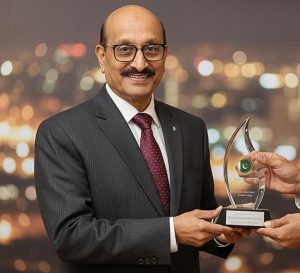A wholly owned subsidiary of Lucky Cement Limited, Lucky Electric Power Company Limited (LEPCL) is all set to put up a 660MW coal power plant at Bin Qasim, Karachi which will be first ever plant to use Thar coal, 350km away from the mine mouth.
Chief Executive Officer of Lucky Electric Power Company Limited Intesar-ul-Haq Haqqi, while talking to media said that the company would not only set a precedent for the whole power sector by using coal produced by SECMC, at a distanced place, but it will also pave the way for export of Thar coal, as the power plant is located at Port Qasim and if this coal could be transported to Port Qasim for producing power, it can also be exported from the same port,
He added that LEPCL is targeting to achieve the commercial operation of this 660MW plant by December 2019. He said that company had already obtained all the requisite approvals including letter of support (LOS), NEPRA upfront tariff and had leased 250 acres land close to Port Qasim. The project would cost approximately $850 million.
Haqqi informed that the company was now finalising the power purchase agreement and implementation agreement with the government and was likely to achieve the financial close by March 2017.
He said the setting up of Lucky Electric Power Project was in line with the Government of Pakistan policy to increase reliance on indigenous resources for power generation. This will facilitate foreign exchange savings besides bringing electricity cost lower thus making its affordable to its consumers and help in bringing competitiveness to our export sector.
Moreover, usage of Thar Lignite away from mine-mouth will also help in expansion of mining in Thar which is in the interest of Pakistan, Province and people of Thar.
LEPCL 660MW coal power plant would be using supercritical technology to ensure highest efficiency level and reduce the emissions to ensure sustainable development. It may be noted that mine-mouth power projects under implementation in Thar are using subcritical technology. The Company has carefully selected one of the most feasible sites for the project in terms of power evacuation, availability of abundant cooling water, ease of fuel supply chain and proximity to industrial area away from the main city.
The project was originally being based on imported coal however, upon advice of the government, it was converted to local (Thar) coal in line with national policy of reducing the reliance on imported fuel, he said, adding Thar coal field had total lignite reserves of 175 billion tons which can be utilised to produce 100,000 megawatt (MW) for over 200 years.
He said LEPCL had done due diligence of Thar coal to be used as fuel in the power plant and now was and was in discussion for formalising Coal Supply Agreement (CSA) with SECMC.
It is expected that all outstanding matters with respect to sustainable Coal Supply Agreement will be resolved with the help of Federal and Provincial Government by end November, 2016. The coal from Thar is to be transported to the plant site and the initial feasibility in this regard has been completed with the objective of ensuring sustainable transportation mechanism. The Group based on its ample experience and transportation study carried out believes that, existing road infrastructure are equipped for viable road transportation.
He informed that Lucky Electric Power Plant electricity tariff would be marginally lower tariff compared to mine-mouth project despite transportation cost because of lower rate of return, higher plant efficiency and no water cost.
Lucky Cement Limited is a part of one of the largest national conglomerates in Pakistan, Yunus Brothers Group (YBG), which was founded in 1962. In addition to owning a 50MW wind power IPP, the group owns and operates around 400MW CPPs. YBG has significantly grown over the last 50 years and today consists of private and public entities involved in building materials, textile, power, PSF, Soda Ash, Chemicals, Life Sciences and real estate sectors. The group is managing 16 industrial projects located in 28 industrial sites and providing direct employment to over 29,000 workers. The group has demonstrated remarkable growth and diversification under the leadership of Muhammad Ali Tabba.





